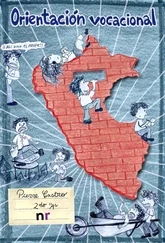♦ ♦ ♦
What was Stella thinking now, I asked myself as our bus arrived at the rain-soaked freight yard in the Paris suburb of Bobigny. I peered out the window. The boches weren’t spoiling us with comfortable passenger compartments this time around. No, we were going to travel like farm animals. My belly was filled with fear. I was glad Jonny, the circus strongman, hadn’t removed his arm from around my shoulder.
As our bus pulled up to the loading ramp, Nazi guards were locking one of the cattle cars. I had foolishly hoped to catch one more glimpse of my Stella before we were loaded. Now I would have to wait until we reached our destination, wherever that was.

CHAPTER 4
“Forty Men or Eight Horses” was stenciled on the side of the cattle car. I followed Jonny up the rain-slicked ramp. We squeezed inside and began jockeying with the others for a spot where we could comfortably sit on our luggage. When the Nazis locked the door, silence fell over us. It was as if we had all stopped to admire how a single action utterly defined our predicament.
They had told us in Drancy that we would be riding for two or three days, so when the train started moving the guessing games of our destination began.
“We’re going to stop in Metz for screening.”
“What do you mean, screening?”
“Why would they give us food when Metz is less than a one-day ride?”
“It seems that there is a big camp in Saxony.”
“Do you think we’re going to clear away the rubble in Berlin?”
“I know that we’re going to Theresienstadt.”
“Theresienstadt is only for old people.”
“Let’s pray we don’t go to a Polish ghetto.”
“Shut up, you silly fools,” Jonny snapped. “We’re going to the spas of ‘Pitchi Poi’.”
You won’t find “Pitchi Poi” on any map. Someone in Drancy, long before I arrived, had dreamt up this fictional destination because it was a big Nazi secret where these transports were bound.
“Let’s find a way of getting out of here before this train goes too far,” Jonny said.
Hypolite, a weasel-faced little fellow in his early twenties whom I had never crossed paths with in Drancy, stood up.
“Listen. Everybody, listen. I’ve ridden this line to Alsace more than a hundred times. We left Bobigny at noon, correct? At this speed we should be at the place that I’m thinking of at around six o’clock. There’s a steep hill and the track curves at the top. The train will be moving like a snail then.” He glanced at his watch.
“It’s three o’clock now. We have enough time to get the job done.”
“Yes, but we need tools to get out of here,” someone shot back.
Hypolite smiled.
“I don’t do anything without forethought.”
Tucked into his socks was a rasp with one end sharpened like a chisel, a saw blade, and a pair of pliers. From inside his hatband he pulled out a drill bit. Many of the men moved closer to the little fellow. He definitely had my attention.
“No sense in trying to force the door open. More than likely it’s wired to an alarm. The best thing is to cut an opening in the back wall,” he said moving to the rear of the car. “If anyone has a better idea, speak up now.”
No one spoke. Hypolite nodded and, using the pliers to turn the drill bit, he began to bore a hole in the back wall. Despite the thickness of the planks, it was a relatively easy task.
“Hey, you could enlarge the hole with the rasp,” I suggested.
“The saw blade will never cut through.”
Hypolite agreed and I began to file. After a few minutes I stopped to catch my breath and Hypolite peered through the hole.
He told me to take a look. The next car was the caboose and I could see the silhouette of a sentry standing in the brakeman’s shelter.
Fortunately the boche hadn’t noticed anything, but it seemed our chance to escape had vanished. A few went off and sat in despair.
“Why not try the other end?” a Hasidic Jew whispered.
“No. Two or three might jump off, perhaps, then the rest would be shot like pigeons,” Jonny said.
“The hell if I’m going to let myself be taken off in a cage like a circus animal,” Hypolite spit.
He dropped to the floor and attacked it with his drill. As he slaved away, sweat dripped from his forehead and his shirt stuck to his back. The region we were passing through was white with frost, but it was stifling in the car. The two small windows barely provided any ventilation, and our fifty packed bodies gave off heat like freshly sheared sheep. I was broiling in the three layers of winter clothes that I had piled on the night before.
The floorboards were stronger and twice as thick as the planks of the back wall. Even when his hands began to bleed, fingers ravaged with splinters, Hypolite’s determination didn’t waver. Realizing the drill wasn’t long enough to go all the way through the wood, he wound a handkerchief around the saw blade and went to work on the edges of the hole until it was funnel-shaped. He pounded the rasp with the heel of one of his boots until the sharpened end punctured the floorboard.
“Now we can really begin sawing,” he proclaimed.
Jonny looked at his watch. There was only half an hour left—hardly enough time to saw a hole large enough to allow a man to escape, but nothing was going to deter us now. We took turns.
Sawing, sawing, sawing, only stopping when the blade burned our hands. Finally we had a hole large enough to allow Jonny and two other men to rip out three planks. The rush of cold air catapulted our excitement. Everyone was smiling.
The train began to slow. We could hear the locomotive straining.
“Here we are, boys. It’s time to jump,” Hypolite said as he wrapped his knees and elbows with strips torn from his blanket.
No one could argue his right to go first. Hypolite lowered himself slowly through the opening. I could hear his feet dragging on the cinders. He leaned on his elbows for a moment, then ducked his head through the hole. He was going to drop belly first. His hands released their hold. Hypolite was gone. We all wanted to rejoice, but was he a free man or did he get crushed under the wheels? We had no idea, but there were fifteen of us who wanted to find out. The others were too old, too sick, or too afraid.
One after another they dropped through the hole. Suddenly it was down to Jonny and me.
“Go ahead, kid. I’ll be the last. The train could derail if I bounced,” he laughed, pushing me toward the opening.
I had already made up my mind to be the last one through that hole.
“Go ahead, Jonny. I’m not a kid anymore.”
“I won’t hear of it. Go on, Pierre, we’re running out of time.”
Something was holding me back. I kept thinking of what I had promised Stella when we walked down those stairs. I felt foolish. I wanted my freedom, but I didn’t want to break my promise. I didn’t want to abandon her. She was sitting in another car thinking of me, depending on me. At least that’s what I hoped.
“Please, Jonny, I want to be the last one.”
Jonny had lost his patience.
“Have it your way.”
He dropped his few possessions through the hole and began to lower himself. His bald head turned crimson as he struggled to squeeze his barrel-chested torso through. His boots hit the cinders.
That’s when I realized that the locomotive wasn’t panting and puffing anymore. The harsh, metallic grinding of the wheels left no doubt that our car had reached the curve.
“Jonny, hurry up!”
Читать дальше













